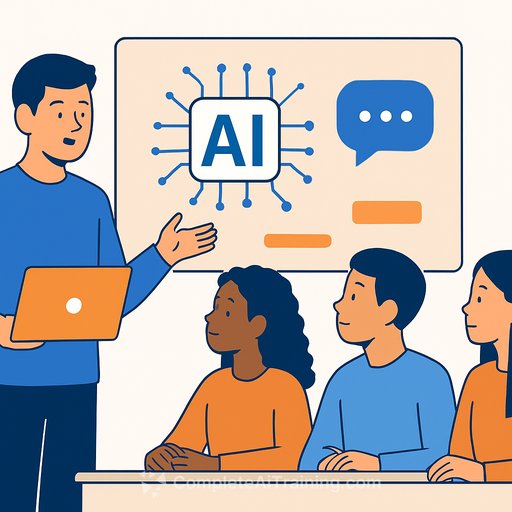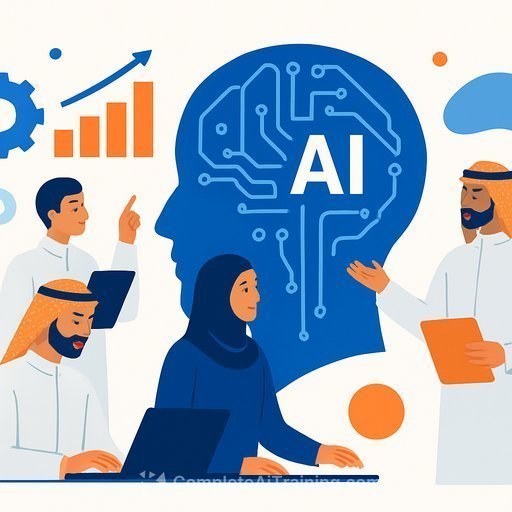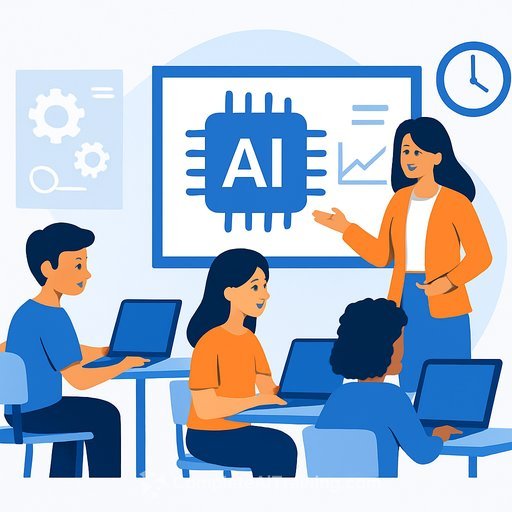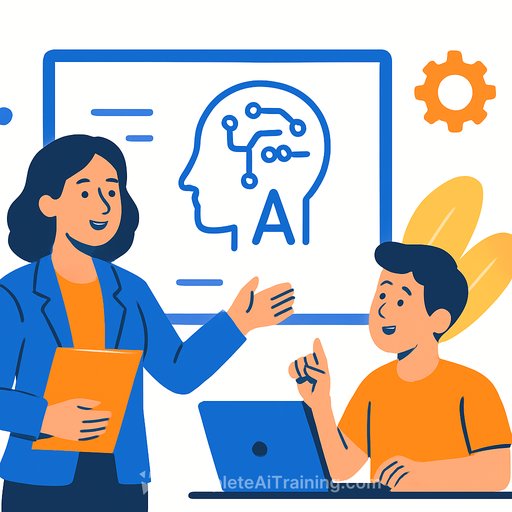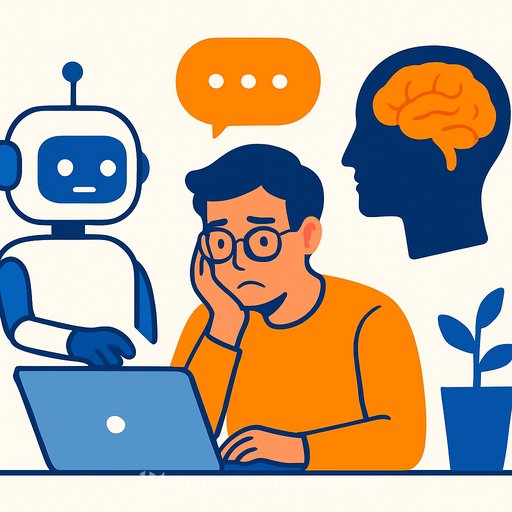Student-Led Workshop Puts Responsible AI into Practice for High Schoolers
November 17, 2025
St. John's University hosted students from Bedford Stuyvesant New Beginnings Charter High School on November 12 for a hands-on workshop on responsible AI use. The session was led entirely by First-Year Seminar students and focused on clear, practical skills students can use right away.
Held in the D'Angelo Center on the Queens, NY, campus and hosted by the Department of Core Studies in St. John's College of Liberal Arts and Sciences, the event invited visiting students to see how AI shows up in learning and daily life-and how to use it with integrity.
"Using technology responsibly is not just a classroom exercise-it can shape how students learn, create, and engage with their community," said Omar Lopez '11G, Adjunct Professor, Department of Core Studies, who organized the event.
First-Year Seminar students ran a series of short presentations and demos. Topics included how to cite AI use, how to check for bias in AI-generated content, and how to spot when reliance on AI crosses into cheating.
- AI sourcing and transparency
- Bias checks and fact verification
- Academic integrity: where the line is-and how to stay on the right side of it
- Interactive quizzes for instant feedback
- Peer mentoring from near-age role models
High school students competed in interactive quizzes for St. John's merchandise, and Johnny Thunderbird made a surprise appearance that kept energy high.
The visitors called the experience both practical and inspiring. "In today's world, AI is everywhere," said Gianel Oscar Hernandez. "It is important to learn how to use it responsibly and understand what it can and cannot do before going to college."
Classmate Isabel Fernandez added, "This event is amazing. Everyone here is so kind and professional. The AI demonstrations were incredible. It is inspiring to see how much you can explore here."
St. John's students were eager to teach. Accounting student Conor Guilfoyle emphasized learning about responsible AI use before college: "The consequences can be severe, even for innocent mistakes." He added that learning from near-peer mentors matters: "It is valuable to learn a tool if you have been taught by someone who has used it. It can be easier to grasp the concept."
New Beginnings teacher Zack Krajcik said the workshop gave students meaningful exposure to college-level tech conversations. "AI is not going anywhere. It is going to be a big part of their futures. It is a tool they will have to learn to use responsibly, especially as they move into college."
Among those attending was Luca Iandoli, Ph.D., Dean, The Lesley H. and William L. Collins College of Professional Studies, and Professor, Division of Computer Science, Mathematics, and Science. He noted the University's expanding work in new technologies and its AI Resource Hub, which offer training and access to modern digital tools. "AI presents both a learning and employability challenge. It is important for students to understand how to work with AI in the right way. Our goal is to help every student use AI safely and ethically. When you use it responsibly, you demonstrate professionalism and integrity."
The First-Year Seminar connects students to New York City and builds information literacy through discipline-based courses. Faculty guide students to think critically, communicate effectively, and engage with diverse perspectives.
"The curriculum is an important place for students to foster their own vision of social justice; to practice effective communication in a variety of contexts; to appreciate different cultural, economic, and religious perspectives; and to be intellectually curious," said Sophie R. Bell, Ph.D., Professor and Chair, Department of Core Studies. "Students can only do the hard work of honing these skills if they develop the independent thinking that prepares them for the ethical and cognitive discipline necessary to wield AI tools in ways that serve their intellectual development, rather than replacing that development."
What Educators Can Apply Tomorrow
- Start early: introduce AI norms in high school so college policies aren't a surprise.
- Use peer-led models: near-age mentors increase engagement and credibility.
- Make integrity explicit: set clear rules for disclosure, citation, and acceptable AI use.
- Build bias checks into assignments: require sources and verification steps.
- Assess with low-stakes quizzes and reflections to reinforce habits.
- Anchor practices to an ethics or risk framework, such as the NIST AI Risk Management Framework.
Further Support for Curriculum Builders
If you're mapping AI literacy to courses or PD, curated catalogs can save time. Explore role-based options at Complete AI Training: Courses by Job for ideas you can adapt to your context.
Your membership also unlocks:

